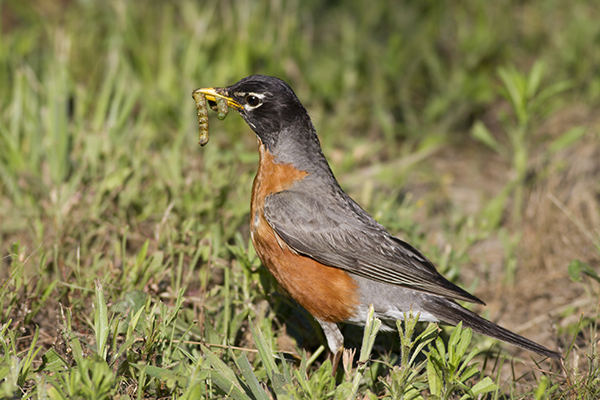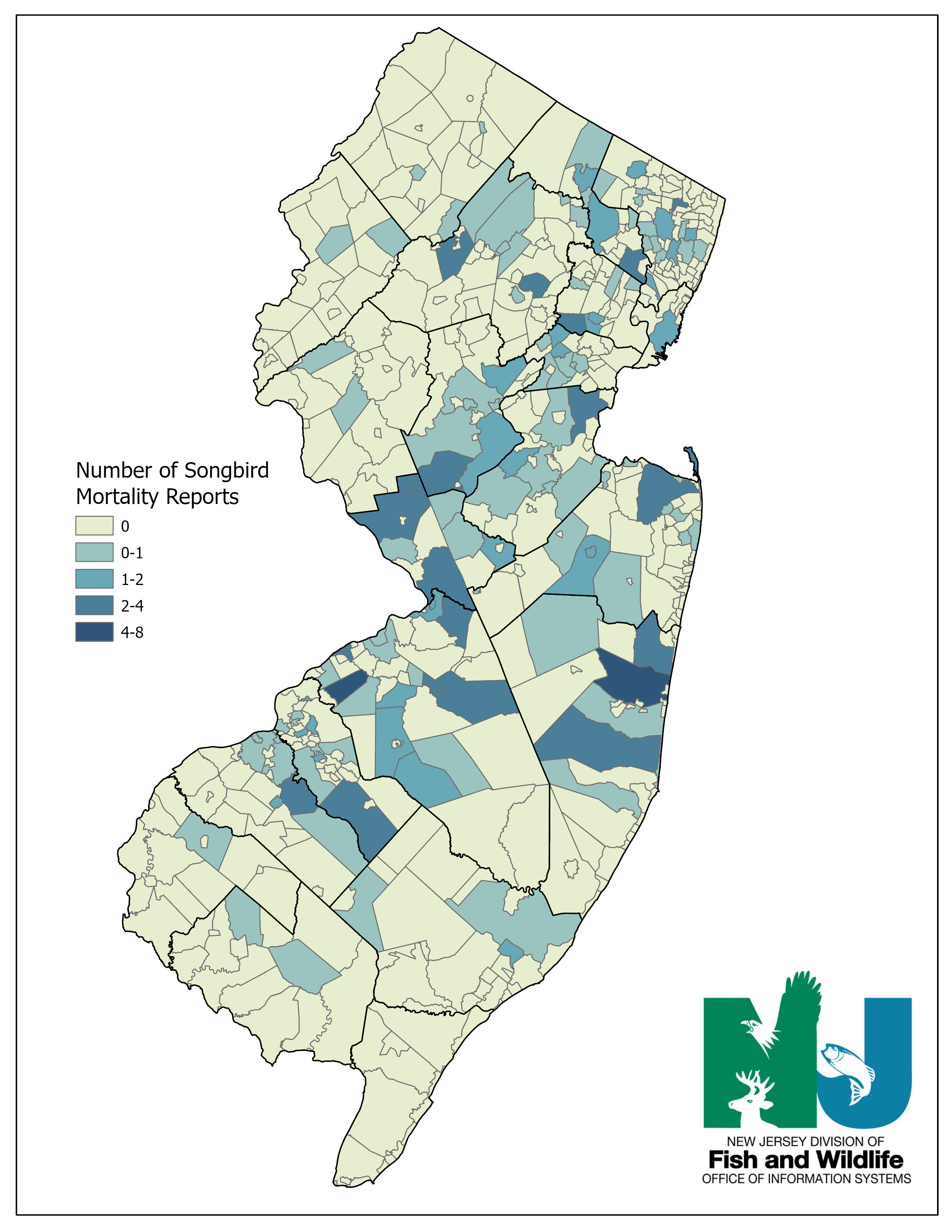July 6, 2021
Updated: November 5, 2021
New guidance on songbird monitoring and feeding:
Occurrences of the mysterious songbird illness and mortality event have continued to decline in the state to the extent that the New Jersey Division of Fish and Wildlife is no longer recommending discontinuing use of bird feeders and baths for those residents that had sick or dead fledglings or hatchlings on their property. The recommendation was initially issued as a precaution to minimize the spread of the still-unknown cause of the songbird mortality event.
The following procedures are recommended for resuming use of bird feeders and baths:
- Thoroughly clean bird feeders and baths with a 10% bleach solution and clean weekly thereafter.
- Remove bird feeders and baths if sick or dead birds are observed and clean thoroughly.
- Avoid handling wild birds. Wear disposable gloves if it is necessary to handle a bird.
- If a dead bird is found on your property it should be double bagged and disposed of in your regular garbage.
- If a sick bird is found it is recommended residents contact either their local animal control or a wildlife rehabilitator for further care.
- Keep pets away from sick and dead wild birds. This is a precaution as there have been no reports of pets contracting this disease in the impacted states.
Since late May, wildlife agencies and wildlife rehabilitators in more than 10 states and Washington D.C. have responded to public reports of sick and dying songbirds. Affected birds typically exhibit symptoms to include eye swelling and squinting, crusty discharge around the eyes or neurologic symptoms such as erratic flight and stumbling, often followed by the death of the bird. Juvenile birds, including fledglings and hatchlings, have been most impacted in New Jersey, with European starlings, blue jays, northern cardinals and American robins the most reported affected species.
Investigating agencies and organizations continue working cooperatively with animal diagnostic laboratories to identify the cause of this illness. While the cause of the songbird mortality event is not yet known, none of the following pathogens have been detected in sick or diseased birds to date: Salmonella and Chlamydia, avian influenza virus, West Nile and other flaviviruses, Newcastle disease virus and other paramyxoviruses, herpesviruses and poxviruses and Trichomonas parasites. No human health, domestic livestock or poultry issues have been reported in association with the bird mortality event.


